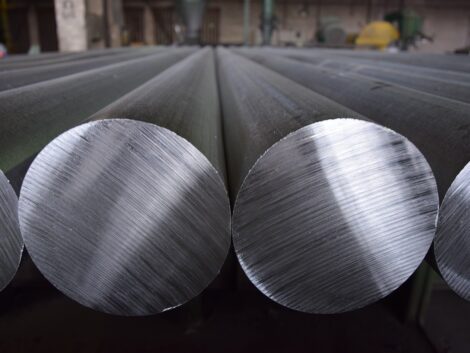Aluminum Association testifies before US International Trade Commission
The Aluminum Association testified today before the US International Trade Commission (USITC) on the economic impacts of Section 232 and Section 301 tariffs programs.
Charles Johnson, president & CEO of the Aluminum Association, emphasised how China’s rampant use of industrial subsidies in the aluminium sector has distorted the global market for the metal.
“The United States is a deficit market for aluminium, meaning it consumes more of the metal than it is able to produce domestically. Consequently, most of US aluminium industry jobs rely in some way on reliable international supply chains,” said Charles Johnson, president & CEO of the Aluminum Association, in testimony before the panel.
“I’m happy to report that the US aluminium industry is globally competitive and growing. However, the industry has faced a distorted global market in recent years driven primarily by massive growth in government-subsidised and state-owned aluminium production in China.”
In recent years, the US aluminium industry has successfully sought relief from unfairly priced and dumped aluminium in several markets using US antidumping and countervailing duty laws. These targeted actions have provided vitally important, durable relief to US producers that the USITC unanimously determined were injured by unfairly traded imports from China and, subsequently, other countries.
“Against this backdrop, Section 301 tariffs targeted specifically at Chinese industrial policy have provided the US aluminium industry with additional support,” added Johnson.
“The association believes that 301 tariffs are the appropriate tool to address state subsidised capacity, and should be increased.”
US aluminium companies have committed or invested more than $3.5 billion in domestic operations over the past year, largely in mid and downstream production and recycling. This is part of more than $6.5 billion invested in the United States over the past decade driven by increased demand for sustainable aluminium products and a bipartisan commitment to targeted trade enforcement.
Johnson also addressed ongoing Section 232 tariffs on aluminium and aluminium products entering the United States.
“With respect to Section 232 tariffs, the association and its members did not request relief under this tool, which chiefly aimed to support US-based primary aluminium producers,” said Johnson.
“And, while the tariffs have provided some level of stability for aluminium firms up and down the value chain, they have not addressed the fundamental and ever-evolving distortions resulting from China’s rampant use of industrial subsidies in the aluminium sector.
“Any future actions to alter or remove the tariffs should be undertaken carefully with a stepped approach, and in a way that minimally disrupts the US market.”
Following the hearing, the association will submit additional written comments to underscore the need for continued commitment to strong trade enforcement. The Commission is required to share its investigation report with Congress by March 15, 2023.








